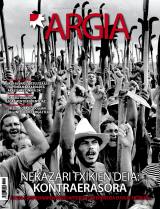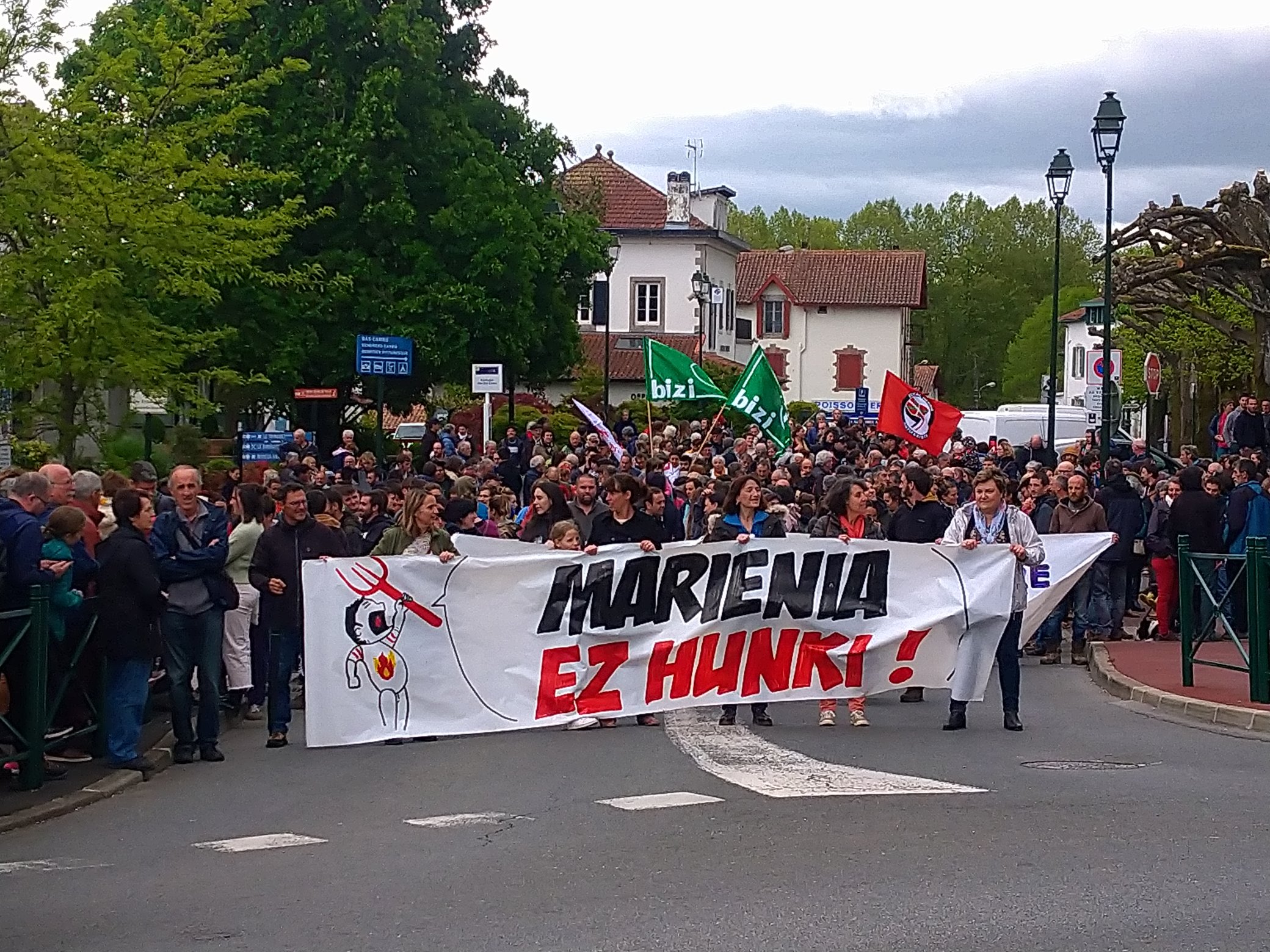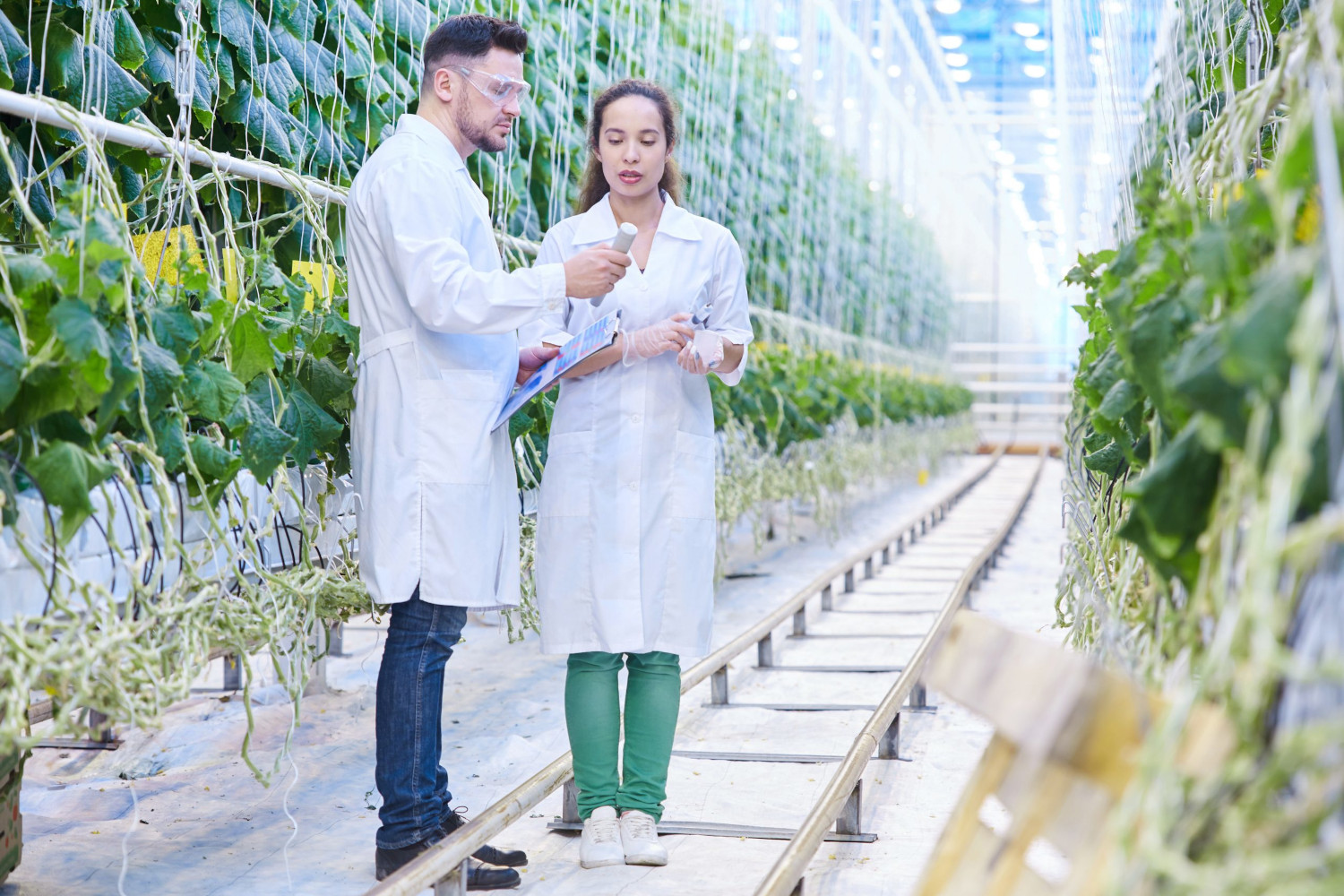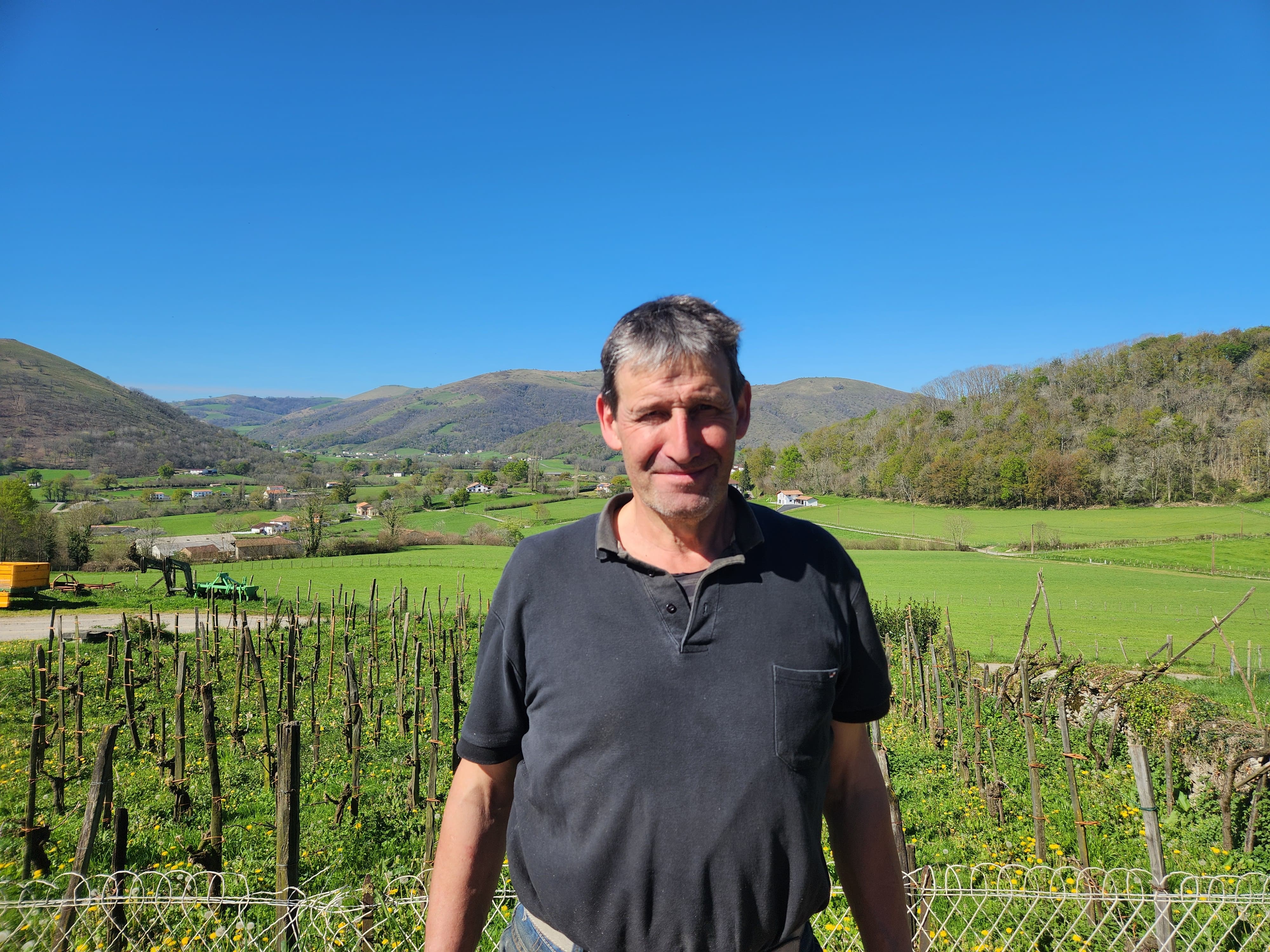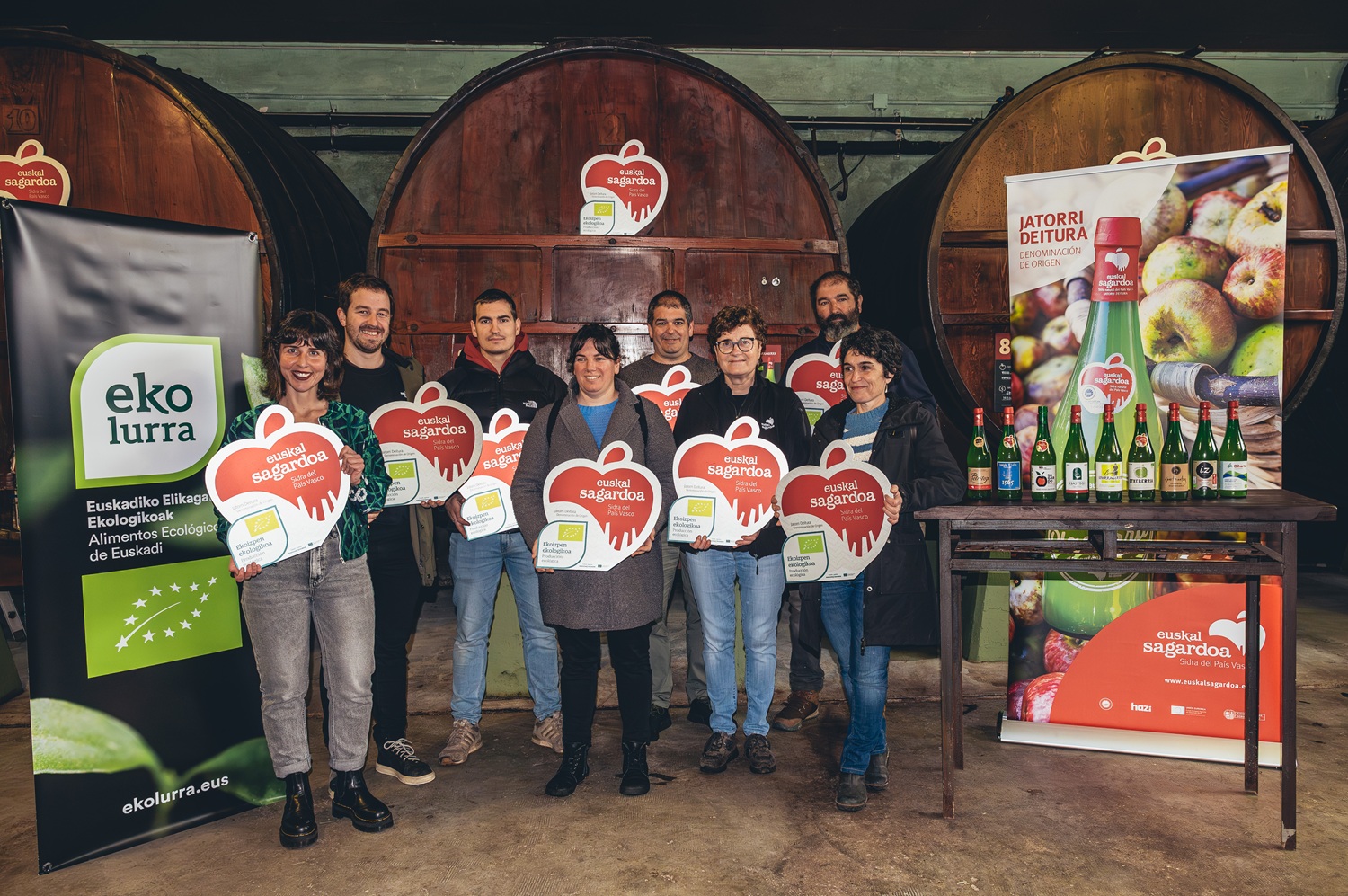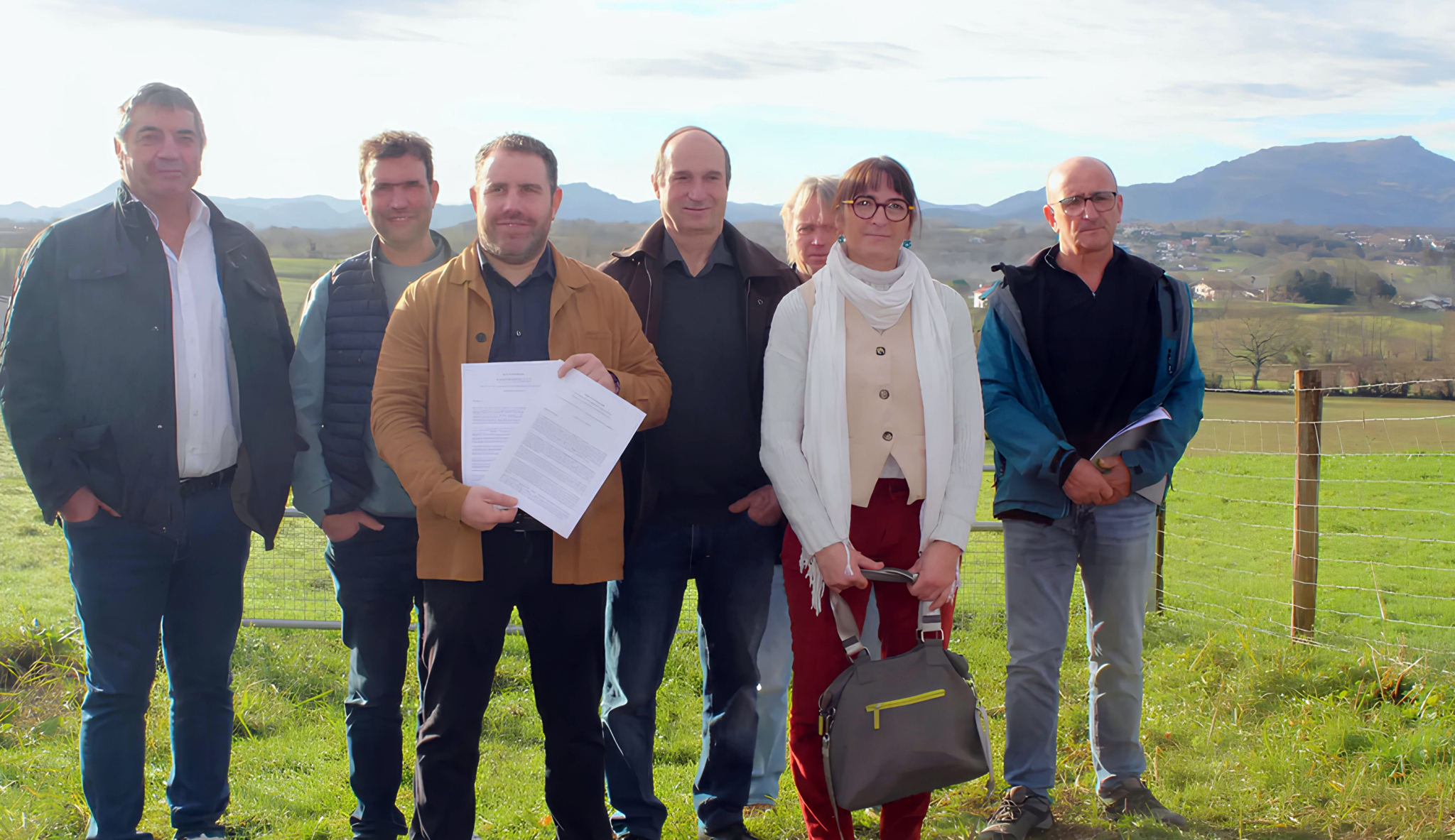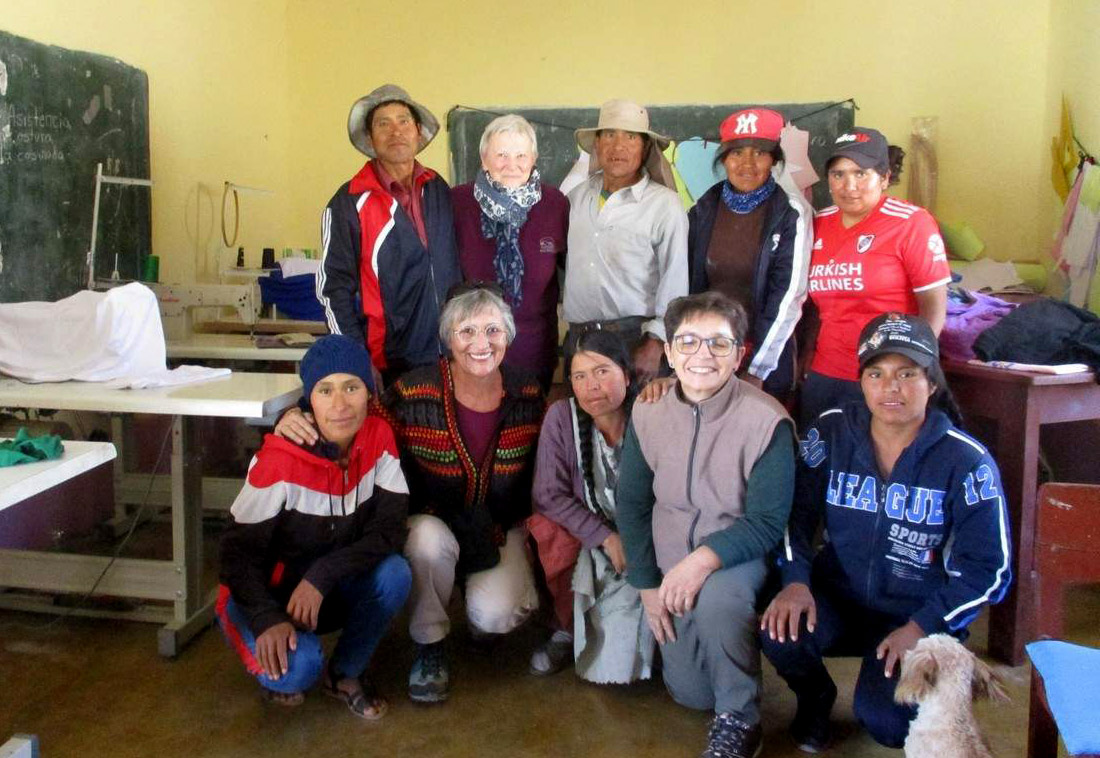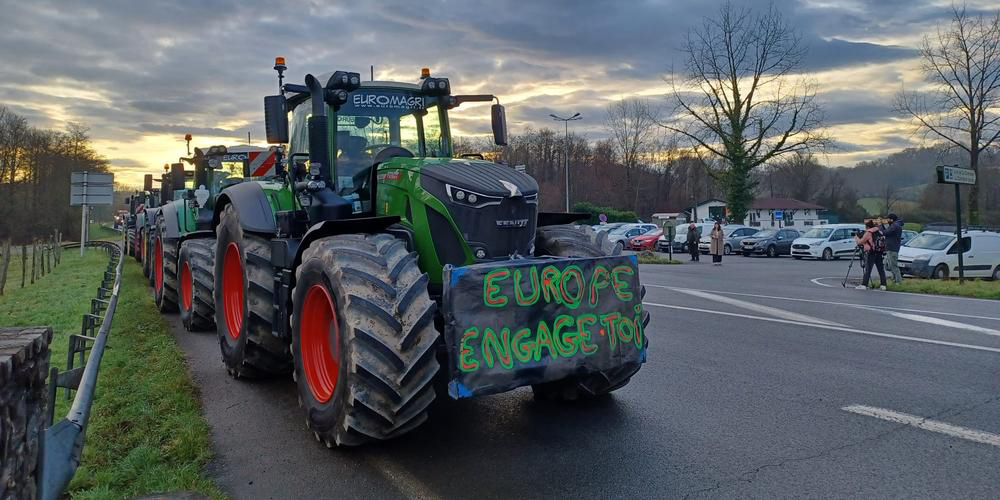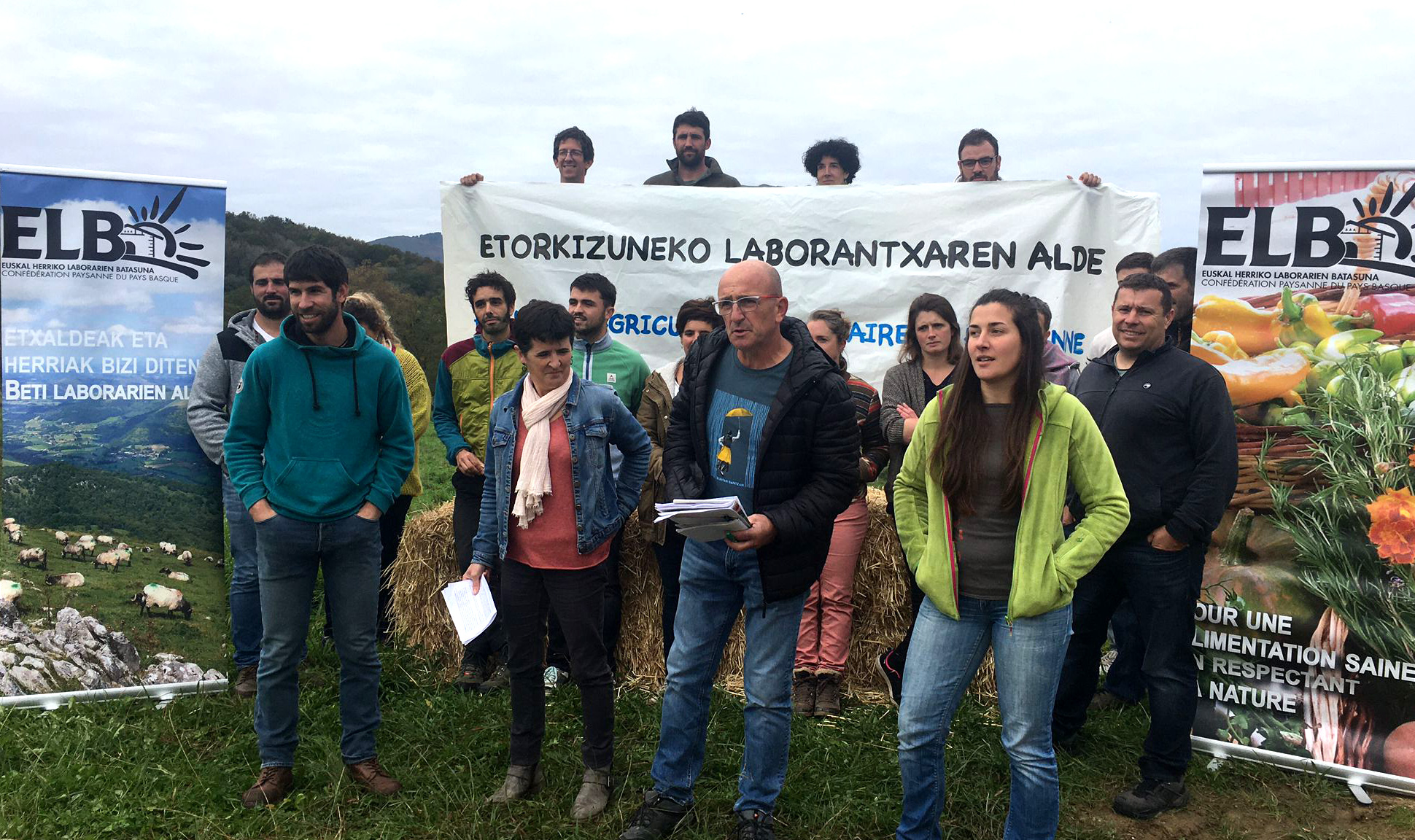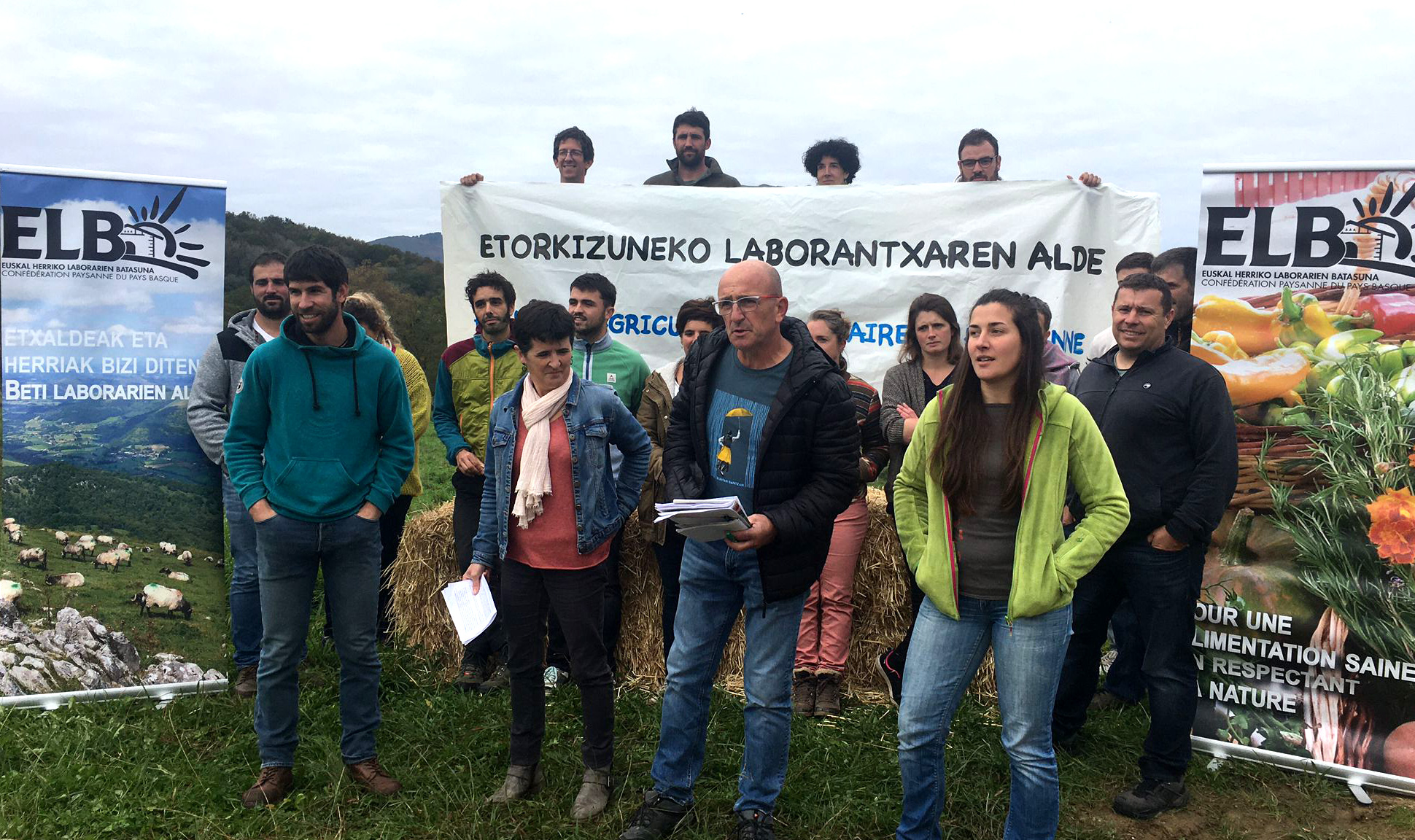Small farmers in the world have a date in the Basque Country
- La Vía Campesina, the world's largest farmers' association, celebrates the VII International Congress of Peasant Agriculture in Euskal Herria. International Congress. The organization was born 24 years ago to confront globalization together, and since then it has grown and consolidated to the same extent that neoliberal policies have increased. Hundreds of representatives from all over the world will meet at the Derio seminar to discuss the offensive of multinationals, the defence of small farmers and the recovery of land. On food sovereignty, in two words.

Since the founding meeting of the organization in Wallonia in 1993, the International Congress of La Vía Campesina had not returned to Europe. To do so, they have chosen Euskal Herria for several reasons. These include the support of the Basque public administration for various projects of the organization and the importance of the historical militant Paul Nicholson in his evolution. It will also, of course, have to do with the presence in the International Coordinating Commission of EHNE Bizkaia in Unai Aranguren. Once you have passed the page you can read the interview.
Aranguren has explained to us that in the congress the situation of cultivation in Europe will be given importance. “In Europe, until now, capitalism has been more social, or greener, and now that capitalism has become more basic; people realize that social democracy has no clear definition of what they want for the continent.” It is not just a home issue; Europe’s voice has a decisive influence on agricultural policies around the world, both through public institutions and transnational corporations.
The position of the European Union, for example, has become an obstacle to the realisation of one of the most important aspirations of La Vía Campesina on the agenda: The UN is demanding the rights of farmers and other people working in rural areas. Together with the United States, the EU argues that there is no need to create a specific instrument to protect farmers’ rights, as the Declaration of Human Rights is sufficient, even as regards specific rights in agriculture.
The Vía Campesina was the one that gave a boost to the process of creating this demand for farmers for more than a decade and is now unwilling to give in, less considering that they have gradually managed to soften the opposite position of some states. The steps to be taken in this struggle will be one of the central themes of the Assembly of Derio, as Unai Aranguren tells us: “We are optimistic, the UN may make a statement next year, and that is important to us, because today we do not have international instruments, such as a court, to report violations of our rights, and we are increasingly being abused by multinationals.”
Recalling attacks on militant peasants
These abuses are those listed in Chapter VII. Another issue that will be addressed in the International Congress will be criminalization, repression and violence against peasants. Berta Zuñiga, daughter of activist Berta Cáceres killed in Honduras in 2016, will be one of the invitees of the congress, which has still suffered an attack. In addition to paying tribute to his mother and others who died, VII. In the congress, peasant people are going to set in motion a solidarity counter-attack,” La Vía Campesina announced.
For some, militancy would not have such serious consequences if what is at stake was not very important. But it is. Here the issue is everyone's food. And, above all, Derio will talk about the clash between food generation models. La Vía Campesina VII. The documentation issued at the International Conference calls for the defence of land, seeds, forests, water and places of residence. These are being transformed from farmers who have traditionally cultivated and/or used in large industries. And this industry is on its way to becoming even more powerful through the mergers of big companies (see number 221 of LARRUN magazine). “Hence the greatest threat to the lives of peasants for thousands of years,” says La Vía Campesina.
Defence of agroecology
.jpg)
Farmers, and not big companies, have to work to extract food from the land, but not in any way, according to La Vía Campesina. Therefore, the movement is clearly committed to agroecology: “Agroecology challenges power and puts local communities at the center of food production, aligned with nature. It is not an ‘adaptation’ tool for the agricultural industry, but its alternative.”
At the end of the Derio Congress we will know what concrete challenges La Vía Campesina will face for the next four years. Whatever it is, it will not be small, as the enemy before us is not. In any case, the evolution of a quarter century of the organization makes it clear that globalised responses are necessary to face globalisation. La Vía Campesina represents about 200 million people, which, as Unai Aranguren has warned us, means having more power than some governments.
La Via Campesinaren lehenbiziko nazioarteko biltzarra Valoniako Mons hirian egin zuten 1993an, mundu osoko hainbat laborari elkarteetako ordezkariek bat egin nahi izan zutenean nekazaritzaren alorrean indarra hartuz zihoan globalizazioari aurre egiteko. Biltzar hura izan zen antolakundearen abiapuntua.
Gaur egun Afrika, Asia, Amerika eta Europako 150 talde baino gehiago dira La Via Campesinako kide. Guztira 200 milioi nekazari inguru. Euskal Herriko taldeei dagokienez, EHNE Bizkaia sindikatuak zuzenean parte hartzen du elkartean, eta EHNE, UAGA eta ELBk, berriz, Espainiako eta Frantziako estatuetako COAG eta Confédération Paysanne sareen bitartez.
2000tik, Emakume Nekazarien Asanblada egiten da Nazioarteko Biltzarrarekin batera, eta 2004tik, Nekazari Gazteena ere bai. Derion, hurrenez hurren, emakumeen bosgarrena eta gazteen laugarrena egingo dituzte. 500 pertsona inguru bilduko dira.
BILTZARRAREN EGUTEGIA:
-Uztailak 16-17: Gazteen Asanblada.
-Uztailak 17-18: Emakumeen Asanblada.
-Uztailak 19: Nazioarteko VII. Biltzarraren inaugurazioa. Ohi bezala, antolakundeko kide berrien aurkezpena egiteko baliatuko da ekitaldia.
-Uztailak 19-22: Biltzarra. Amaieran La Via Campesinak datozen lau urteetarako dituen erronkak eta estrategiak aurkeztuko dituzte.
-Uztailak 23: Deriotik Bilbora martxa, eta manifestazioa Moyua plazatik Plaza Berrira.
“Hizkuntzaren aldetik ere erronka handia da honelako biltzar bat antolatzea”, dio Unai Aranguren EHNE Bizkaiako kideak. Denek elkar ulertu ahal izateko ezinbestekoa izango da borondatezko 80 interprete inguruk osatutako “gudarostearen” lana; “guretzat ondasuna dira, eta ondo zaindu behar ditugu”. Ohiko hizkuntza nagusiak (ingelesa, frantsesa, gaztelania eta portugesa) izango dira ardatza, eta horiekin batera euskarak ere izango du ofizialtasun estatusa.
Alta, bost hizkuntza horietako bakarra ere ez dakiten pertsona asko izango dira biltzarrean. “Horiek beren itzultzaileekin batera etortzen dira, eta haiek egiten dute zubi-lana hizkuntza ofizialetako batekin”, azaldu du Arangurenek.
Euskal Herriko Laborantza Ganberak hogei urte bete ditu. 2005ean sorturik, bataila anitzetatik pasa da Ainiza-Monjoloseko erakundea. Epaiketak, sustengu kanpainak edota Lurramaren sortzea, gorabehera ainitz izan ditu hogei urtez.
Txotx denboraldian eredu ekologikoan ekoiztutako Euskal Sagardoaren eskaintza izango da hainbat sagardotegitan, eta hura bistaratzeko, Jatorri Deiturak eta ENEEK-Ekolurrak kupeletan paratzeko euskarria aurkeztu dute.
Lurraren alde borrokan dabilen orok begi onez hartu du Frantziako Legebiltzarrak laborantza lurren babesteko lege-proposamenaren alde bozkatu izana. Peio Dufau diputatu abertzaleak aurkezturiko testua da, eta politikoa eta sentimentala juntaturik, hemizikloan Arbonako okupazioa,... [+]
203 diputatu alde eta hiru aurka agertu dira martxoaren 11 gauean egin bozketan. Higiezinen agentziak haserre agertu dira, eta bi salaketa aurkeztu ditu FAIN Frantziako Higiezinen Federazio Nazionalak Europako Batzordean. Bata, lege-proposamenari esker botere gehiago jasoko... [+]
Laborantzaren Orientazio Legea pasa den astean ofizialki onartu du Frantziako Parlamentuak. Ostegunean Senatutik pasa da azken aldikoz. Iazko laborarien mobilizazioen ondotik, aldarrikapenei erantzuteko xedea du lege horrek. Aldiz, ingurumenaren aldeko elkarteek azkarki salatzen... [+]
Zubiak eraiki Xiberoa eta Boliviaren artean. Badu jadanik 16 urte Boliviaren aldeko elkartea sortu zela Xiberoan. Azken urteetan, La Paz hiriko El Alto auzoko eskola bat, emazteen etxe baten sortzea, dendarien dinamikak edota tokiko irrati bat sustengatu dituzte.
Datorren astean Departamenduko Laborantza Ganbarako hauteskundeak ospatuko dira Ipar Euskal Herrian. Frantzia mailako FDSEA eta CR sindikatuez gain, ELB Euskal Herriko Laborarien Batasuna aurkezten da, "euskal laborarien defentsa" bermatzeko.









